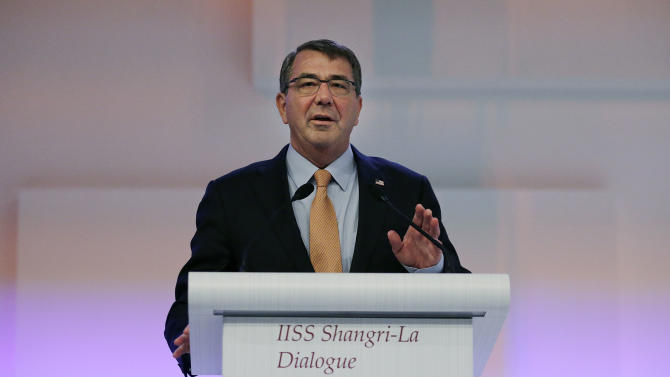Authorities have announced the arrest of Dylann Roof, who is suspected of the shooting at an African American church in Charleston, South Carolina. He was arrested during a traffic stop in North Carolina after law enforcement authorities received a tip from a local business. Roof was reportedly cooperative with the police during his arrest, and has been extradited to South Carolina.
US President Barack Obama addressed the tragedy, stating that he and First Lady Michelle Obama knew members of the parish personally. The president also touched upon the issue of gun ownership in the United States, saying: "At some point, we as a country have to reckon with the fact that this type of massacre does not happen in other advanced countries".
Of course, the notion that outsiders or external forces can influence American white supremacists groups and individuals is not unheard of. Many such groups in the US openly display the Nazi swastika and other symbols of white supremacist movements. It is interesting, however, that Roof's display of white supremacy symbols from outside the US did not entail Nazi paraphernalia. Rather he openly displayed on his jacket the flags of apartheid-era South Africa and the flag of Rhodesia (a British colony which broke away from the UK in 1965 under white rule until the end of a civil war in 1980, when it was renamed Zimbabwe under its current ruler, Robert Mugabe).
The shootings come at a time of high racial tensions in the United States, with several incidents of police killings of young African Americans surfacing in the media, and attacks on police in retaliation as well.
The incidence of the shooting in Charleston is based in part on reported racial tensions in the city, specifically regarding the lack of political empowerment of the large African American community (few reportedly hold positions of civic responsibility, especially in proportion to their numbers in the city). Nevertheless, there is also a deep historic symbolism with regard to the shooting transpiring in Charleston. As a port city, Charleston was a major hub of the Trans-Atlantic slave trade. After the US Revolutionary War, Charleston actually had a relatively high (18%) population of so called "free people of color". Later, Charleston would become a major center of the American Civil Rights Movement in the 1960's, although it was not in the spotlight as much as places like Birmingham, Alabama.
The symbolism we can glean from what happened in Charleston is that the issue of race relations and racial violence is not a new phenomenon and not something we can easily address. This is perhaps obvious to an American reader, but many outsiders unfamiliar with the historic intricacies of US race relations are often unaware (as I have discovered when several of my non-American friends have said "Why don't you guys just fix the problem?!). A city which has had such a central role in the issue of race in America should hopefully help remind us that this is a problem with deep rots, and it is at the roots that we can find a resolution.
Our hearts go out to the victims of the Emanuel AME Church shootings, and to their loved ones.
US President Barack Obama addressed the tragedy, stating that he and First Lady Michelle Obama knew members of the parish personally. The president also touched upon the issue of gun ownership in the United States, saying: "At some point, we as a country have to reckon with the fact that this type of massacre does not happen in other advanced countries".
Of course, the notion that outsiders or external forces can influence American white supremacists groups and individuals is not unheard of. Many such groups in the US openly display the Nazi swastika and other symbols of white supremacist movements. It is interesting, however, that Roof's display of white supremacy symbols from outside the US did not entail Nazi paraphernalia. Rather he openly displayed on his jacket the flags of apartheid-era South Africa and the flag of Rhodesia (a British colony which broke away from the UK in 1965 under white rule until the end of a civil war in 1980, when it was renamed Zimbabwe under its current ruler, Robert Mugabe).
The shootings come at a time of high racial tensions in the United States, with several incidents of police killings of young African Americans surfacing in the media, and attacks on police in retaliation as well.
The incidence of the shooting in Charleston is based in part on reported racial tensions in the city, specifically regarding the lack of political empowerment of the large African American community (few reportedly hold positions of civic responsibility, especially in proportion to their numbers in the city). Nevertheless, there is also a deep historic symbolism with regard to the shooting transpiring in Charleston. As a port city, Charleston was a major hub of the Trans-Atlantic slave trade. After the US Revolutionary War, Charleston actually had a relatively high (18%) population of so called "free people of color". Later, Charleston would become a major center of the American Civil Rights Movement in the 1960's, although it was not in the spotlight as much as places like Birmingham, Alabama.
The symbolism we can glean from what happened in Charleston is that the issue of race relations and racial violence is not a new phenomenon and not something we can easily address. This is perhaps obvious to an American reader, but many outsiders unfamiliar with the historic intricacies of US race relations are often unaware (as I have discovered when several of my non-American friends have said "Why don't you guys just fix the problem?!). A city which has had such a central role in the issue of race in America should hopefully help remind us that this is a problem with deep rots, and it is at the roots that we can find a resolution.
Our hearts go out to the victims of the Emanuel AME Church shootings, and to their loved ones.

